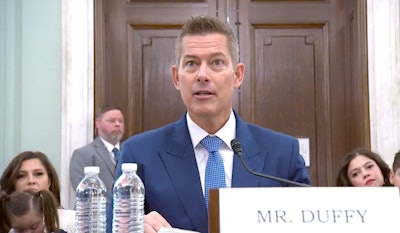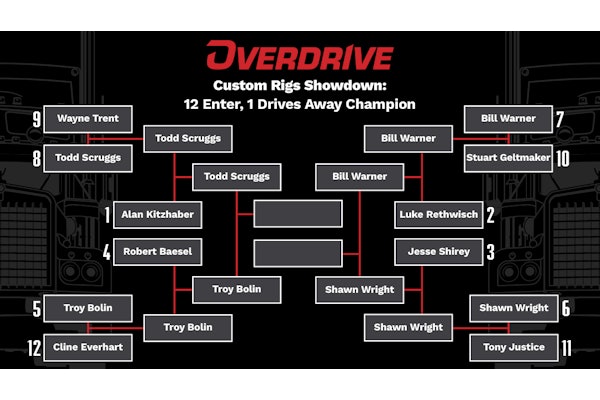
The U.S. Senate Committee on Commerce, Science and Transportation on Wednesday held its nomination hearing for former Wisconsin Congressman Sean Duffy, President-elect Donald Trump’s nominee for Department of Transportation Secretary.
Duffy seemed to have support from committee members from both sides of the aisle.
During the three-hour hearing, Duffy fielded questions from Senators on the committee regarding issues in their respective districts, as well as issues facing the nation as a whole, related to infrastructure, safety across different modes of transportation and more.
One common recurring theme from several Senators was the upcoming Surface Transportation Reauthorization, which expires at the end of September 2026. That bill authorizes funding for highways and much more, and will be a critical piece of transportation legislation the Trump administration will need to pass.
Duffy was asked by Sen. Shelley Moore Capito (R-West Virginia) for his support in providing the necessary assistance in drafting the legislation, which he agreed to do.
Autonomous vehicles, though not specifically trucks, were brought up a number of times as well, particularly as it relates to ensuring the people and companies developing those technologies remain in the U.S., and that America does not fall behind nations such as China in developing those technologies as a matter of national security.

[Related: Trump taps former Rep. Sean Duffy to lead DOT]
Electric vehicles, again not specifically trucks, were also among topics discussed in relation to the Highway Trust Fund, their impact on infrastructure given their increased weight compared to internal combustion engines and more. Concern was raised over the fact that, since electric vehicles don’t use liquid fuels, they don’t pay into the Highway Trust Fund. Duffy said he believes EV owners “should pay for use of our roads,” but noted that “how to do that is more challenging” to answer.
Much of the talk and questioning throughout the hearing centered around aviation and rail, with little talk about specifics in trucking.
One trucking topic that did surface, however, was the DRIVE Safe Act, which was included in the 2021 Infrastructure Investment and Jobs Act (IIJA) that required the establishment of a pilot program for under-21 interstate truck drivers. Sen. Todd Young (R-Indiana) introduced the bill in the Senate in March 2021 before it was included in the IIJA.
[Related: Spending bill retools under-21 pilot rules]
Young expressed his displeasure with how the plan was eventually implemented, though he didn’t go into specifics about the problems he sees with it, noting the Biden administration’s DOT “reconstrued the language ... as a bizarre construction of the nation’s law.” He asked Duffy for his commitment to review “how the Biden administration screwed up the implementation and potentially try to fix this broadly bipartisan effort.” If it can’t be fixed, Young added, he asked that Duffy work with him to “improve the language next go-round.”
Duffy said he co-sponsored the bill when he was a U.S. Representative and that he “saw the same concerns. We want to make sure these young people are safe when they drive, and maybe there’s some additional standards they have to have. And I haven’t looked at the bill that you passed, but I commit to you that I will look at where the Department is, or how they mangled the intent of the Congress, to make sure what Congress passed is fairly and rightfully implemented, and if there’s a problem I will work with you and clearly tell you what that problem is.”
[Related: Time to put an owner-operator behind the wheel of FMCSA?]









